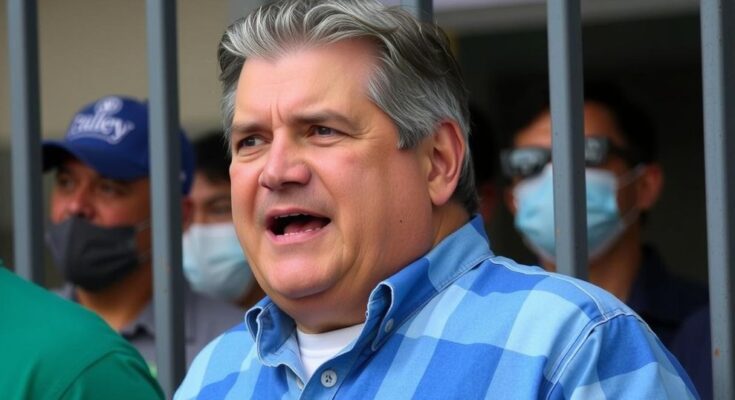Venezuela has released an additional 177 imprisoned election protesters, raising the total to 910 out of over 2,000 arrested after the disputed July vote. Despite the government’s claims, rights groups question the legitimacy of these releases and highlight ongoing human rights abuses. The backdrop of international scrutiny and the upcoming inauguration of U.S. President-elect Donald Trump add further complexity to the situation.
Venezuela has announced the release of an additional 177 election protesters, increasing the total number of detainees freed to 910 out of more than 2,000 individuals arrested following the contested July 28 electoral vote. This announcement was made on Monday by Attorney General Tarek Saab. Despite these claims, human rights organizations note that they are unable to confirm all the releases and assert that at least three protesters lost their lives while in custody amid the protests following Nicolas Maduro’s declared victory.
Following the national electoral council’s announcement of Maduro’s win—despite pre-election polls showing him trailing considerably behind opposition leader Edmundo Gonzalez—demonstrations erupted across the country. The opposition continues to criticize both the electoral council and the Supreme Court, alleging these institutions are biased in favor of Maduro. Amidst these events, at least 28 individuals were reported killed and nearly 200 injured during clashes with security forces. As of early December, the rights organization Foro Penal reported 1,877 political prisoners still incarcerated.
The government has indicated a desire to review cases stemming from this political violence, evidenced by recent decisions to release protesters under certain conditions, including a mandate for them to appear before a court monthly. The increasing number of released individuals follows scrutiny from the International Criminal Court regarding the government’s violent response to protests, and comes just before Maduro is set to assume office for a third term on January 10, shortly before the inauguration of U.S. President-elect Donald Trump.
The political landscape remains tense as the relationship between the United States and Venezuela teeters on potential changes in policy, particularly in light of sanctions previously enacted against Maduro’s administration. Such recent releases may be perceived as an attempt by the Venezuelan government to mitigate international pressure, especially given the continued detention of American citizens within the country.
Human rights organizations remain vigilant and critical of the Venezuelan government’s assurances regarding the treatment of protesters and political prisoners, underscoring the complex nature of the political environment in Venezuela as it approaches a critical transitional period.
The political situation in Venezuela has been characterized by significant unrest, particularly following the disputed presidential election on July 28, where President Nicolas Maduro claimed victory amid allegations of electoral fraud. The protests against the government’s actions resulted in thousands of arrests and considerable violence, with many opposition figures asserting that the electoral process lacked legitimacy. International bodies, including the International Criminal Court, are monitoring the situation, which adds a layer of complexity to Maduro’s administration as it navigates potential diplomatic relations with the incoming U.S. administration under President-elect Donald Trump.
In summary, Venezuela’s recent release of 177 election protesters reflects ongoing tensions within the country following a highly contested election. While the government has taken steps to release some detainees amidst international scrutiny and calls for political reform, serious concerns remain about human rights violations and the treatment of political prisoners. As the political landscape evolves, particularly with the impending U.S. administration change, the implications for Venezuela’s governance and international relations remain to be seen.
Original Source: www.aljazeera.com




